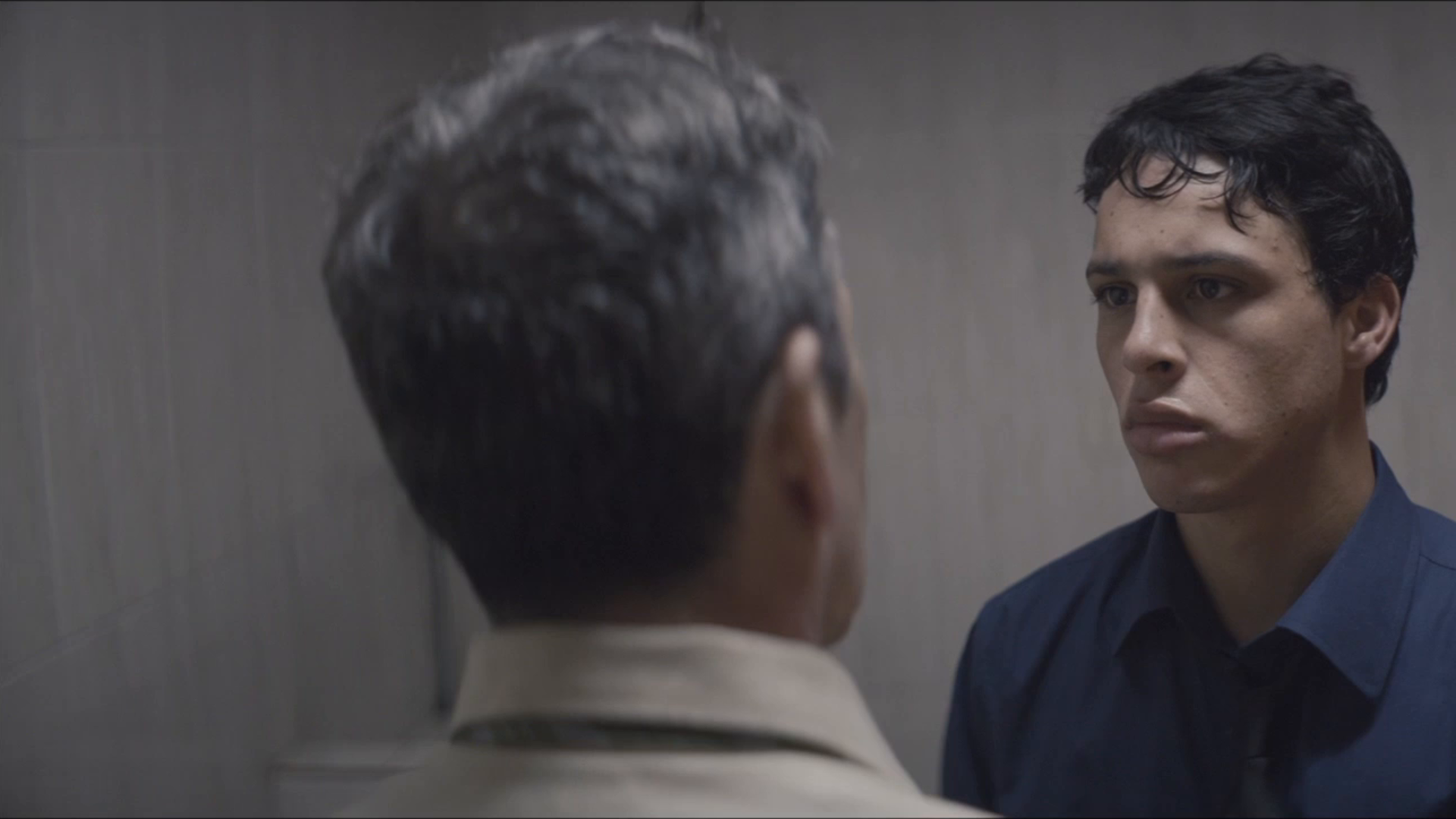From Afar (Desde Allá) is a powerful Venezuelan drama directed by Lorenzo Vigas that delves into themes of loneliness, class division, and the search for human connection in a fractured society. Winner of the Golden Lion at the 2015 Venice Film Festival, the film stands out for its minimalist storytelling, restrained performances, and haunting emotional depth. It is a quiet yet piercing exploration of two men who come from vastly different worlds but are drawn together by a complex, unsettling bond that defies simple definitions of love or power.
The story follows Armando (played by Alfredo Castro), a middle-aged man living in Caracas who leads a solitary life running a dental prosthetics lab. Beneath his calm exterior lies a deep emotional void. Armando prowls the city, seeking the company of young men whom he pays—not for sex, but merely to be near them, to watch them undress from a distance. This disturbing yet deeply lonely behavior sets the tone for a story rooted in quiet desperation. His life changes when he encounters Elder (Luis Silva), a tough street youth and gang member from the city’s poor neighborhoods. What begins as an exchange of money and hostility slowly evolves into a complicated relationship filled with tension, mistrust, and unexpected tenderness.
At its heart, From Afar is not a traditional love story. It is a study of human fragility, where desire and control become intertwined with pain and vulnerability. The emotional distance between Armando and Elder mirrors the vast social and economic gap dividing Venezuela’s rich and poor. Armando’s quiet, repressed demeanor contrasts sharply with Elder’s impulsive aggression, yet both characters share an unspoken longing for affection and acceptance. As their relationship deepens, the boundaries between exploitation and intimacy blur, leaving the viewer unsettled but captivated.

Vigas’s direction is deliberate and restrained, relying heavily on silence and subtle gestures rather than overt dialogue. The camera often observes from a distance, emphasizing the title’s theme of separation — both physical and emotional. The framing frequently isolates characters in the center of empty spaces, visually reinforcing their loneliness. The cinematography, by Sergio Armstrong, uses muted tones and natural lighting to create an atmosphere that feels both intimate and suffocating. Caracas itself becomes a silent character: a city full of chaos, poverty, and unspoken violence lurking just beyond the frame.
The performances are exceptional. Alfredo Castro delivers a nuanced portrayal of a man trapped within his own emotional detachment, while Luis Silva brings raw energy and unpredictability to the role of Elder. Their chemistry is charged with tension — at once magnetic and unsettling. Neither character is entirely sympathetic or condemnable; both are flawed, broken men searching for meaning in a society that offers them none. Their connection, though brief and ambiguous, feels profoundly real.
What elevates From Afar beyond a simple character study is its emotional ambiguity. Vigas refuses to give the audience easy answers. The relationship between Armando and Elder oscillates between affection and manipulation, tenderness and cruelty. The film’s final act, shocking yet inevitable, forces viewers to question what true connection means when it’s built on pain and power. There is no catharsis — only the haunting realization that closeness can be as destructive as distance.


In the end, From Afar is a masterful meditation on isolation, desire, and the human need for closeness in an alienating world. With its quiet intensity and moral complexity, the film lingers long after it ends, offering no comfort — only reflection. It is a story about two souls who reach out toward each other from the edges of loneliness, only to discover how fragile and dangerous that connection can be.


